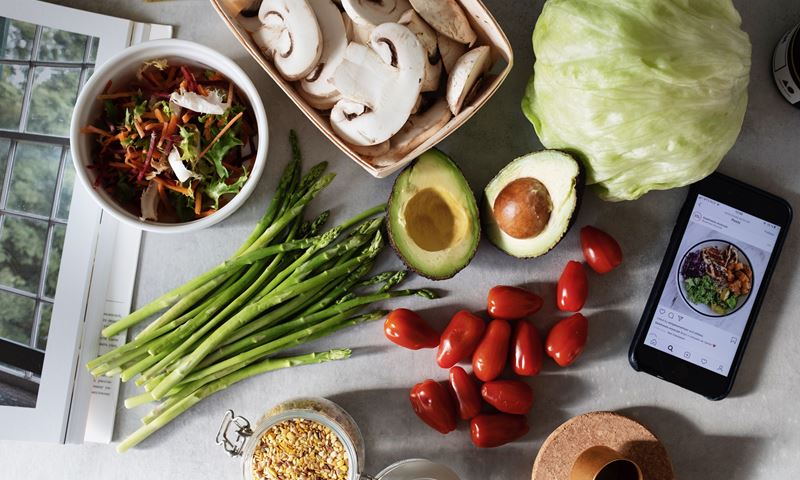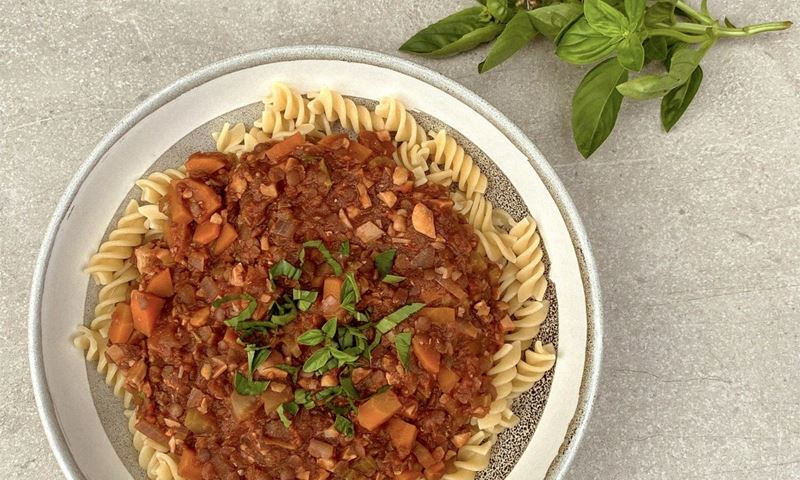How often have you had to throw veggies out because they’ve gone bad before you had a chance to eat them? While we’re not heading to the supermarket or grocers as often, there has never been a better time to make sure the fresh produce you are buying lasts as long as possible.
Just as we need oxygen to survive, vegetables need to breathe too. By influencing the amount they respire, it will affect the rate they deteriorate.
Follow these tips below to get the most out of your veg and download our printable guide to stick on the fridge so you have these tips handy at home whenever you need them!
Start by removing any rubber bands or ties from vegetables before following these recommendations.
Asparagus
Store on the bench in a glass filled with a little water, stems down. Change the water mid-week. These will last just over a week this way.
Basil
Basil likes to be kept in a glass of water, out of the fridge (like you would flowers). Store out of direct sunlight and the change water daily – it will last around two weeks.
Beetroot
Remove the beet tops and place in the crisper drawer for around 10 days.
Broccoli
Broccoli lasts well in an open container or cloth produce bag so it can breathe in the fridge. Should last four to seven days.
Cabbage
Store loose in the crisper drawer to last around two weeks.
Capsicums
Capsicums store well in a loose cloth bag in the crisper draw for one to two weeks, and once cut should be stored with the seeds and stem attached.
Carrots
Remove all their leafy tops and store in a closed container. Some moisture will develop but carrots prefer this.
Cauliflower
Use a closed container in the fridge for maximum freshness.
Celery
Keep celery whole and wrap tightly in foil and keep in the crisper. Foil can be reused a number of times as long as you’re careful when opening it.
Corn
Buy with the husk on and store in the crisper. Corn is best eaten sooner rather than later.
Cucumbers
Store these in the crisper drawer and away from moisture.
Garlic, onions and potatoes
Store all of these veggies away from each other, in a cool dark place.
Potatoes will last longer in a paper bag and also last longer when you buy the ones with soil still intact.
Green beans
Store in a reusable container in the crisper, and they should last around a week.
Green herbs (except basil)
Use damp paper towel or damp fresh cloth wipe and gently roll within the wet paper or cloth. Place in a plastic zip lock bag and store in the front of the fridge – they should last around two weeks.
Lettuce, spinach and rocket
Leaves don’t like moisture. If you wash prior to storing, make sure they are dry before taking a container, placing paper towel in the bottom and the leaves on top, without cramming them in. Cover with more paper towel and the lid before placing in the fridge.
Pumpkin
Store whole pumpkins in a cool, dark place with cardboard beneath the base to help prevent it rotting.
Sliced pumpkin will last well in the fridge, if covered in plastic wrap or aluminum foil to stop moisture from causing rot.
Sweet Potato
Store in a cool, dark, well-ventilated place.
Tomatoes
These prefer to be kept at room temperature and should last this way for up to two weeks, depending how ripe they are. You can store them in the fridge if you want them to stop ripening.
Zucchini
Store in the crisper, wrapped in paper towel – will last around five days.
Freezing produce
Frozen vegetables are great to have on hand. Their nutritional value is preserved while they are frozen. Frozen vegetables can be hard to find in supermarkets at the moment, so why not get some fresh produce and freeze your own with these handy tips below.
Blanching the vegetables deactivates the ripening enzymes and helps to preserve the nutrients, colour, flavour and texture. To do this:
- Filling a large pot with water
- Bring to a rapid boil
- Place the vegetables in for two to three minutes
- After this, dunk in bowl of water with ice to stop the cooking process
- Drain and freeze.
Green beans and snow peas
To prepare them, wash and blanch for two minutes, then drain and allow to dry.
Spread beans out on a baking tray and freeze for one to two hours before placing in a zip lock bag in the freezer. They will last several months to a year this way.
Broccoli and cauliflower
Wash and break into florets or cut into pieces. Blanch for three minutes, then drain and allow to dry completely before spreading out on a tray and freezing for two hours. Bag into zip lock bags and they will keep for several months.
Capsicums
These don’t require blanching before freezing. Just chop them up and place in an airtight bag to freeze. They will lose their crunch after thawing but still perfect to use in cooking.
Carrots
Peel and chop carrots into bite sized pieces. Blanch and then place into zip lock bags or a container to freeze.


